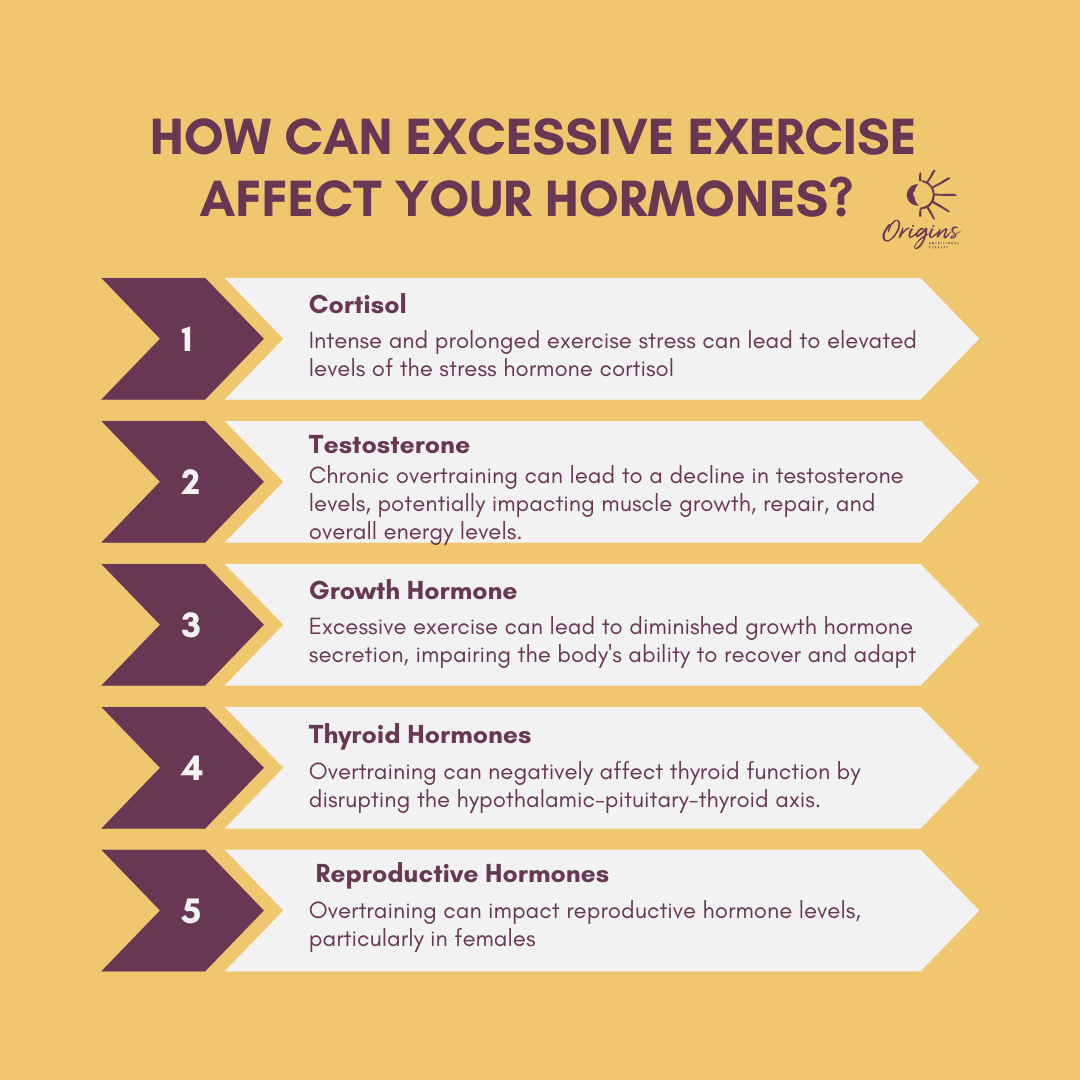Mini-Blog: Can excessive exercise affect your hormones?
We’re all aware of the age old saying “too much of a good thing is a bad thing”, and that holds true even for exercise.
The endocrine system is responsible for producing and regulating hormones that control numerous physiological processes in the body.
Excessive exercise can have significant effects on the endocrine system, leading to dysregulation of various hormones: ⤵
💥 Cortisol: Intense and prolonged exercise stress can lead to elevated levels of the stress hormone cortisol. While acute increases in cortisol are normal during exercise, excessive exercise without sufficient recovery can cause chronically elevated cortisol levels. This can lead to muscle breakdown, reduced immune function, and disruptions in other hormone systems.
💥 Testosterone: Initially, testosterone levels may rise during and after intense exercise as a response to the physical stress. However, chronic overtraining can lead to a decline in testosterone levels, potentially impacting muscle growth, repair, and overall energy levels.
💥 Growth Hormone: Intense exercise can stimulate the release of growth hormone, which is essential for muscle growth, repair, and overall tissue maintenance. However, excessive exercise can lead to diminished growth hormone secretion, impairing the body's ability to recover and adapt.
💥 Thyroid Hormones: Overtraining can negatively affect thyroid function by disrupting the hypothalamic-pituitary-thyroid axis. This can result in reduced production of thyroid hormones (T3 and T4), leading to a slower metabolism, fatigue, and even potential weight gain. 😩
💥 Reproductive Hormones: Overtraining can impact reproductive hormone levels, particularly in females. Women may experience disruptions in their menstrual cycles due to alterations in estrogen and progesterone levels, leading to irregular periods or even amenorrhea (absence of periods).
Listening to your body is crucial for preventing the negative hormonal consequences of excessive exercise! Make sure you are consuming enough calories overall, enough carbohydrates before and after workouts, and enough protein after workouts and throughout the remainder of the day.
Need help figuring out what the right amount of training is, and how to fuel your body from a nutrition standpoint? Book a discover call to see what your options are for working together!

